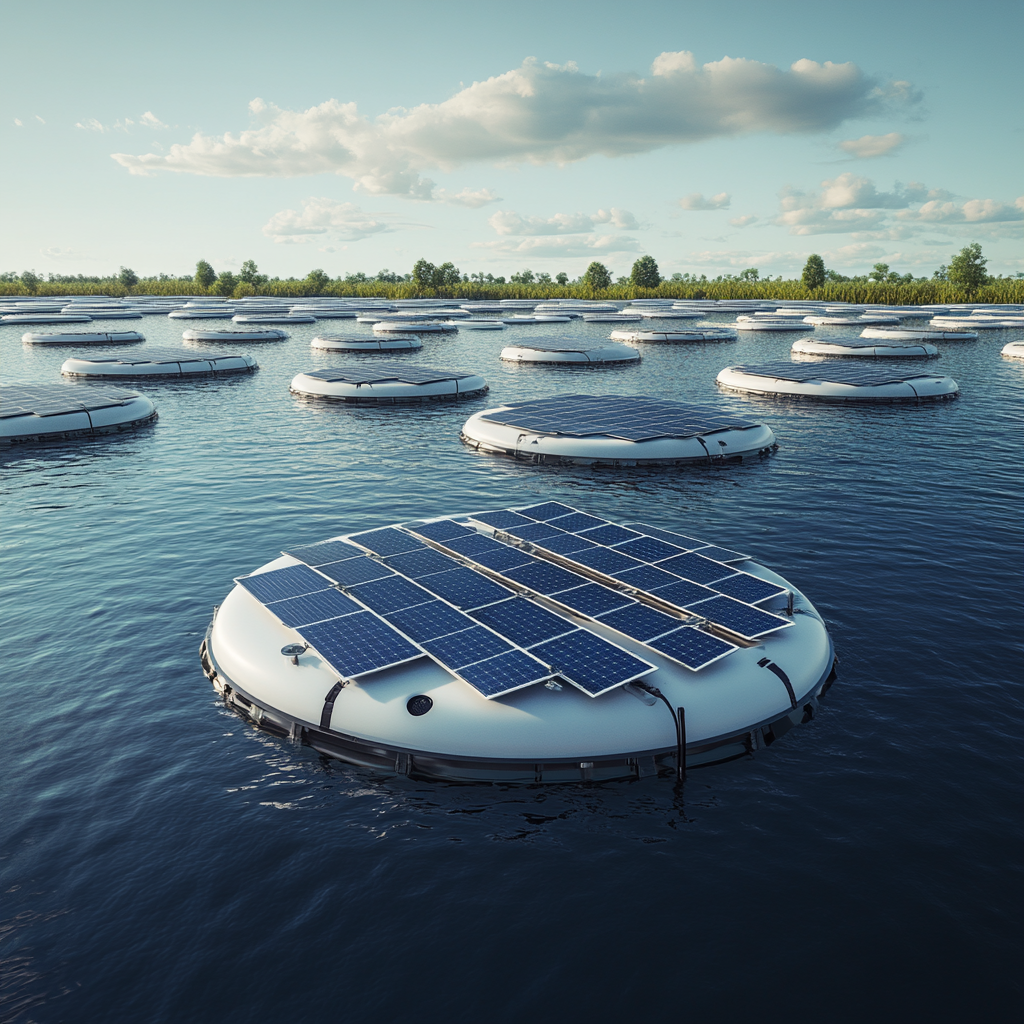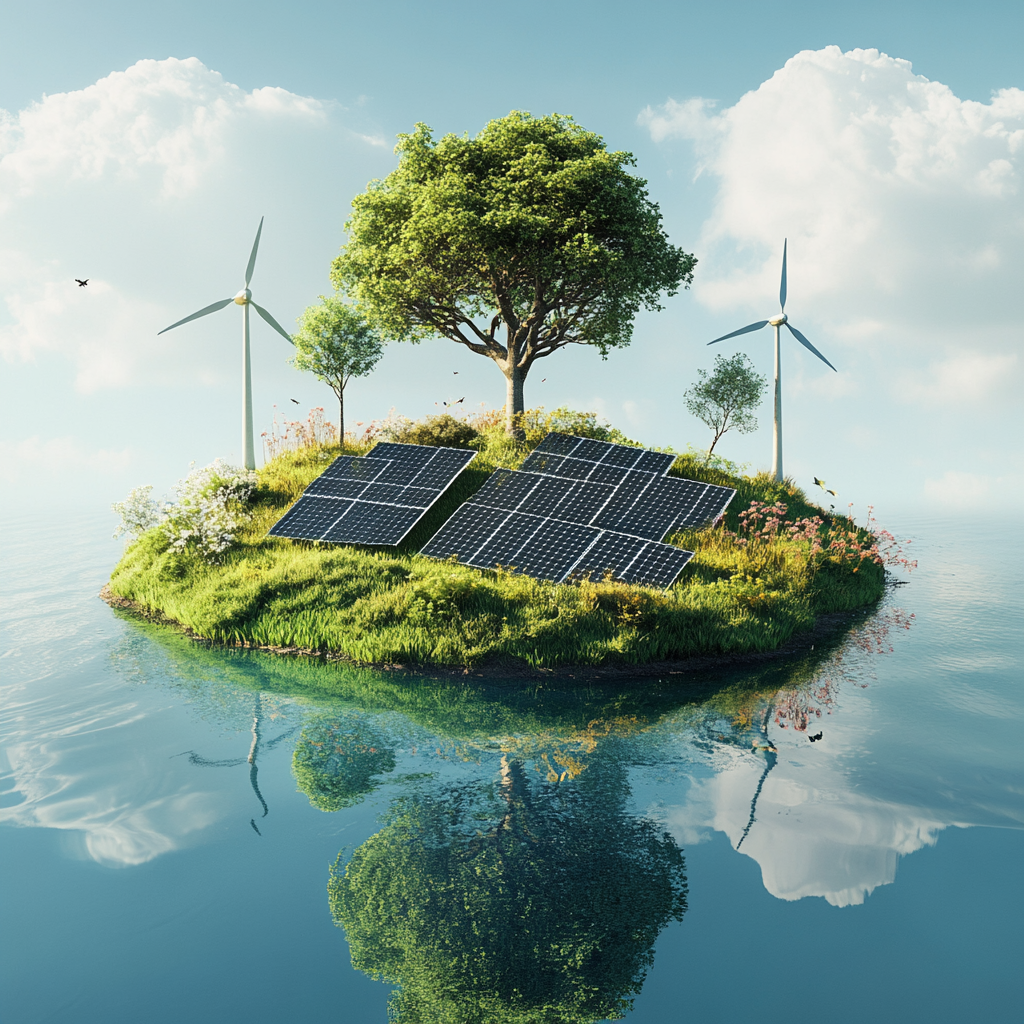

Floating PV systems represent a transformative approach to harnessing renewable energy, offering organisations an effective way to maximise energy potential while promoting sustainability. By utilising underutilised water bodies, floating solar plants can significantly enhance energy generation without competing for valuable land resources. The unique advantage of floating solar installations lies in their ability to operate at cooler temperatures, resulting in increased efficiency compared to traditional land-based solar modules. This produces more electricity and leads to considerable cost savings, making floating PV systems an appealing option for organisations seeking to bolster their energy resilience and lower operational costs. Additionally, the dual benefits of conserving water resources while generating clean energy align perfectly with the growing emphasis on environmental stewardship, positioning your organisation as a leader in sustainable practices. Embracing this innovative technology can pave the way for enhanced energy efficiency and a stronger commitment to corporate social responsibility.
Floating solar projects, utilising floating photovoltaics, provide a versatile solution to meet the energy demands of various geographic regions, overcoming challenges related to land scarcity or high land costs. Floating solar projects can thrive in urban, rural, and industrial settings by deploying solar panels installed on the expansive surfaces of water bodies—ranging from lakes and reservoirs to coastal areas. This flexibility enables nations to harness the potential of solar energy, regardless of land availability. As countries commit to reducing carbon emissions and transitioning to renewable energy sources, floating photovoltaics emerge as an attractive option that accommodates diverse climate conditions while addressing water evaporation, a significant concern in drought-prone regions. The Solar Energy Research Institute emphasises that by adopting floating solar projects, nations can achieve their sustainability goals and contribute to a global movement for practical renewable energy solutions tailored to local needs, utilising advanced solar PV panels.
Floating solar projects using floating PV technology extend their impact beyond electricity generation, offering significant environmental advantages. One of the most notable benefits is the reduction of water evaporation, which is crucial in areas facing water scarcity or drought. By shading the water surface, floating platforms help maintain better water levels that are critical for local ecosystems and water supply management. Furthermore, floating solar technology can enhance water quality by limiting algae growth as the solar cells diminish sunlight penetration. This eco-friendly approach also promotes biodiversity by creating unique habitats for aquatic life. By implementing floating solar projects, organisations advance their energy sustainability goals and contribute to protecting vital water resources, showcasing a strong commitment to environmental stewardship while utilising anchoring systems for stability.
Implementing floating solar projects requires careful navigation of potential challenges, such as connectivity issues in areas with underdeveloped electricity infrastructures and understanding local ecosystem dynamics. Establishing strong partnerships with local authorities, communities, and environmental experts is essential to address these challenges. Collaborative efforts can facilitate thorough environmental assessments, ensuring that floating solar systems excel in energy generation and harmoniously integrate into their surroundings. Organisations can build trust and create tailored solutions that respect local needs and uphold environmental integrity by engaging stakeholders early in the planning process. This approach mitigates risks and enhances the overall success and sustainability of floating solar farms, contributing to the growing global floating solar capacity. Additionally, attention to mooring and anchoring systems is crucial for the reliability of these projects, which are becoming a significant part of the world’s solar installations. Such dedication solidifies an organisation’s commitment to responsible and ethical energy practices.
Floating solar panels (FPVs) represent a groundbreaking floating solar project that enhances sustainability and acts as a financial safeguard against the unpredictability of energy markets. By generating electricity on water bodies, these floating systems reduce the reliance on traditional land-based solar farms, which can be affected by fluctuating land use costs and regulatory changes. The cooler operating temperatures of floating PV plants improve their efficiency, leading to higher energy production and, ultimately, lower electricity costs. As organisations aim to stabilise their energy expenditures, the consistent and predictable electricity generated by FPVs is a buffer against external market volatility. This strategic shift towards innovative renewable solutions, including solar arrays, supports long-term financial planning and positions organisations competitively in an increasingly energy-conscious global market focused on sustainable energy.
As organisations increasingly prioritise Corporate Social Responsibility (CSR), solar farms featuring floating photovoltaic panels (FPVs) are emerging as powerful narrative tools to showcase commitment to sustainable innovation. By integrating FPVs into their energy strategies, organisations can highlight their installed capacity to generate electricity while promoting water conservation through the cooling effect these panels provide. This alignment with sustainability goals enhances the organisation’s reputation and resonates with stakeholders, investors, and customers who value responsibility and innovation over traditional energy sources like natural gas. Sharing success stories related to FPV implementation can create a compelling message, illustrating how embracing these technologies leads to tangible environmental benefits while supporting local ecosystems. By leveraging solar farms and FPVs in their sustainability narratives, organisations can foster greater engagement, inspire collective action, and establish themselves as pioneers in transitioning to a more sustainable future.
Floating solar technology represents a cutting-edge evolution in renewable energy, combining the efficiency of solar power with innovative deployment solutions on water bodies. As organisations aim to optimise land use while maximising energy generation, floating solar plants provide a promising pathway forward. These solar farms deliver significant energy output and tackle pressing environmental challenges, such as water evaporation and ecosystem preservation. Advancements in floating solar systems have increased efficiency and adaptability across diverse climates, enhancing their appeal in regions with limited land availability. By harnessing the dual benefits of energy generation and environmental conservation, floating solar stands at the forefront of the renewable energy revolution, offering a sustainable solution that meets both local needs and global sustainability goals.
Floating solar panels (FPVs) and floating PV plants offer a unique opportunity for water conservation while advancing solar power production. These floating solar installations significantly reduce water evaporation by providing shade on water surfaces, which is crucial in regions facing water scarcity and drought. This preservation of water levels supports local ecosystems and aids in managing water resources effectively. Additionally, FPVs enhance water quality by limiting sunlight penetration, curbing algae growth, and promoting healthier aquatic environments. As organisations adopt these solar farms, they boost their energy sustainability through PV modules and play a vital role in protecting essential water resources. This comprehensive approach embodies the green transition, making FPVs a promising solution to sustainable energy generation and water conservation challenges.
In an era where sustainability is paramount, embracing floating solar farms, especially on quarry lakes, positions organisations as leaders in transitioning to a greener future. Not only do floating solar systems align with corporate sustainability goals by reducing energy costs and mitigating environmental impact, but they also offer an innovative approach to resource management. By harnessing the untapped potential of water bodies like quarry lakes, organisations can enhance energy generation while contributing to water conservation and preserving local ecosystems. This holistic strategy strengthens the organisation’s commitment to responsible practices and resonates with increasingly eco-conscious stakeholders. By adopting floating solar farms, organisations make significant strides towards future-proofing their operations against the volatile energy market while making a tangible difference in their communities.

This website uses cookies to improve your experience. Choose what you're happy with.
Required for the site to function and can't be switched off.
Help us improve the website. Turn on if you agree.
Used for ads and personalisation. Turn on if you agree.
This website uses cookies to improve your experience. Choose what you're happy with.
Required for the site to function and can't be switched off.
Help us improve the website. Turn on if you agree.
Used for ads and personalisation. Turn on if you agree.